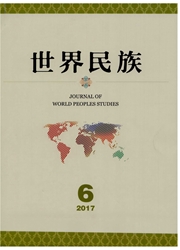

 中文摘要:
中文摘要:
土耳其是世界上切尔克斯人分布数量最多的国家,而切尔克斯人在土耳其却受到政府的压制。本文梳理了土耳其切尔克斯人发展的历史脉络,其社会地位的演变大体可以分为三个阶段。第一阶段,从19世纪60年代至共和国建立,切尔克斯人逐渐步入国家权力的中心,对帝国的政治、军事、外交以及文化等方面产生了重要影响。第二阶段,从1923年至1999年,切尔克斯人受到政府压制,难以表达自身诉求,不得不隐瞒自身的族裔认同,切尔克斯人问题由此产生。第三阶段,自1999年土耳其成为欧盟候选成员国以来,土耳其政府实行了一系列宽容政策,切尔克斯人得以公开表达自身诉求。然而,土耳其政府对切尔克斯人仍旧缺乏认可与尊重,并未完全放弃压制切尔克斯人的策略。此外,土耳其少数族群概念的独特性、切尔克斯入表达自身诉求能力的缺乏以及土耳其政府与公众对切尔克斯人问题的不重视,切尔克斯人问题难以在短期内获得解决。
 英文摘要:
英文摘要:
Turkey is the country with the largest number of Circassians around the world. However, the Circassians have suffered from oppression by the Turkish government. By clarifying the historical context of the development of Turkish Circassians, the evolution of their social status can be divided into the following three stages. The first stage is from 1860s to the establishment of the Republic of Turkey. Circassians gradually rose to the highest level of national power and had important influence on the political, military, diplomatic and cultural aspects of the empire. The second stage is from 1923 to 1999, in which Circassians suffered government oppression and found it difficult to express their demands. As a result, they had to hide their own ethnic identity, which gave rise to the Circassian problem. The third stage started since 1999 when Turkey became an EU candidate country. The government implemented a series of policies of tolerance. Thus, Circassians were able to openly express their political and cultural demands. However, the government still lacks recognition and respect and has not completely given up its policy of oppression on the Circassians. In addition, the uniqueness of the nation' s conception of minorities, the Circassian' s inadequate capacity of voicing their own needs, the lack of attention from the Turkish government and the general public, all led to the fact that the Circassian problem cannot be solved in the short term.
 同期刊论文项目
同期刊论文项目
 同项目期刊论文
同项目期刊论文
 期刊信息
期刊信息
